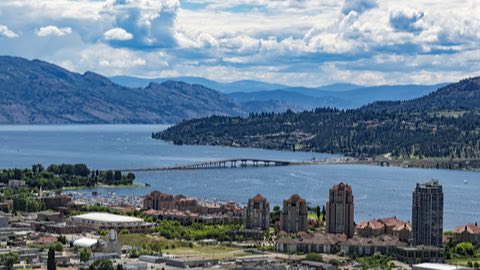
The City of Kelowna, BC, in partnership with Rogers Communications and the University of British Columbia (UBC), is installing light (LiDAR) sensors running over a 5G network to monitor traffic patterns. The project is being called Canada’s first real-world 5G smart city solution. The wireless sensors and software from Blue City Technology will capture consistent data on vehicle and foot traffic patterns over a 24-hour period – regardless of changes in lighting or weather – while maintaining the privacy of people and not using facial recognition.
The pilot project is part of a three-year research program being conducted by the UBC to study 5G applications and develop smarter cities.
“Until now, detailed information about the way cyclists, pedestrians and vehicles move and behave in urban environments has been surprisingly difficult to collect and, importantly, share in real-time,” said professor David Michelson, lead researcher on the project and director of the AURORA connected vehicle test bed at UBC Vancouver. “This is as close to a perfect academic, public sector and private enterprise partnership as one can imagine. None of us could have done this on our own.”
The collected data will be stored securely on Microsoft Azure and will be used by UBC research students to help find ways to improve vehicle, pedestrian and cyclist safety.
“This is an exciting opportunity for Kelowna to build on the work we’re doing to bring smart city technologies to our city,” said Colin Basran, mayor of Kelowna. “Transportation has always been a top concern for our citizens and one of the council’s priorities. As we grow, we need to better understand what these travel interactions look like and how can we ensure the safe management of everyone using our streets, curbsides, sidewalks and pathways.”